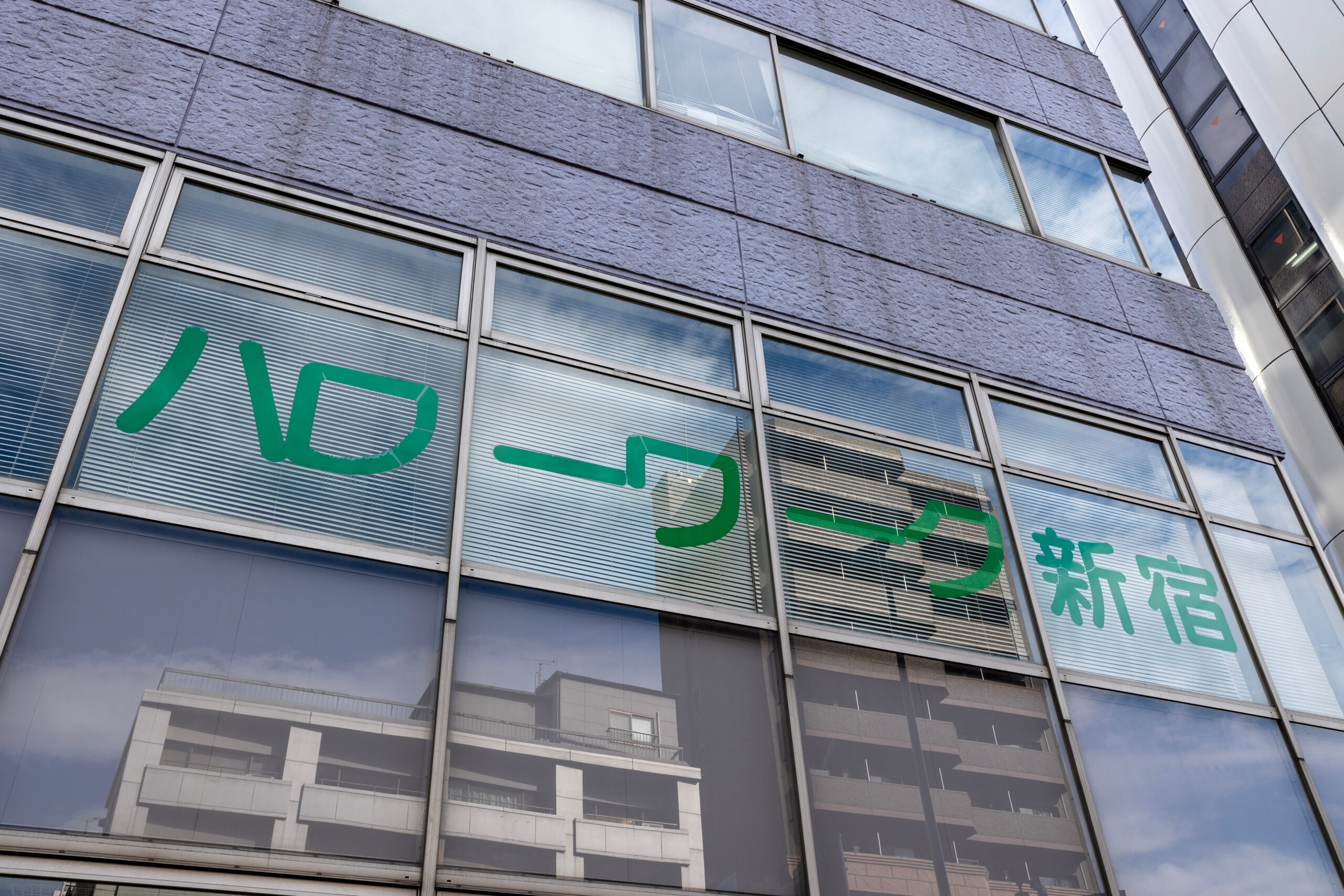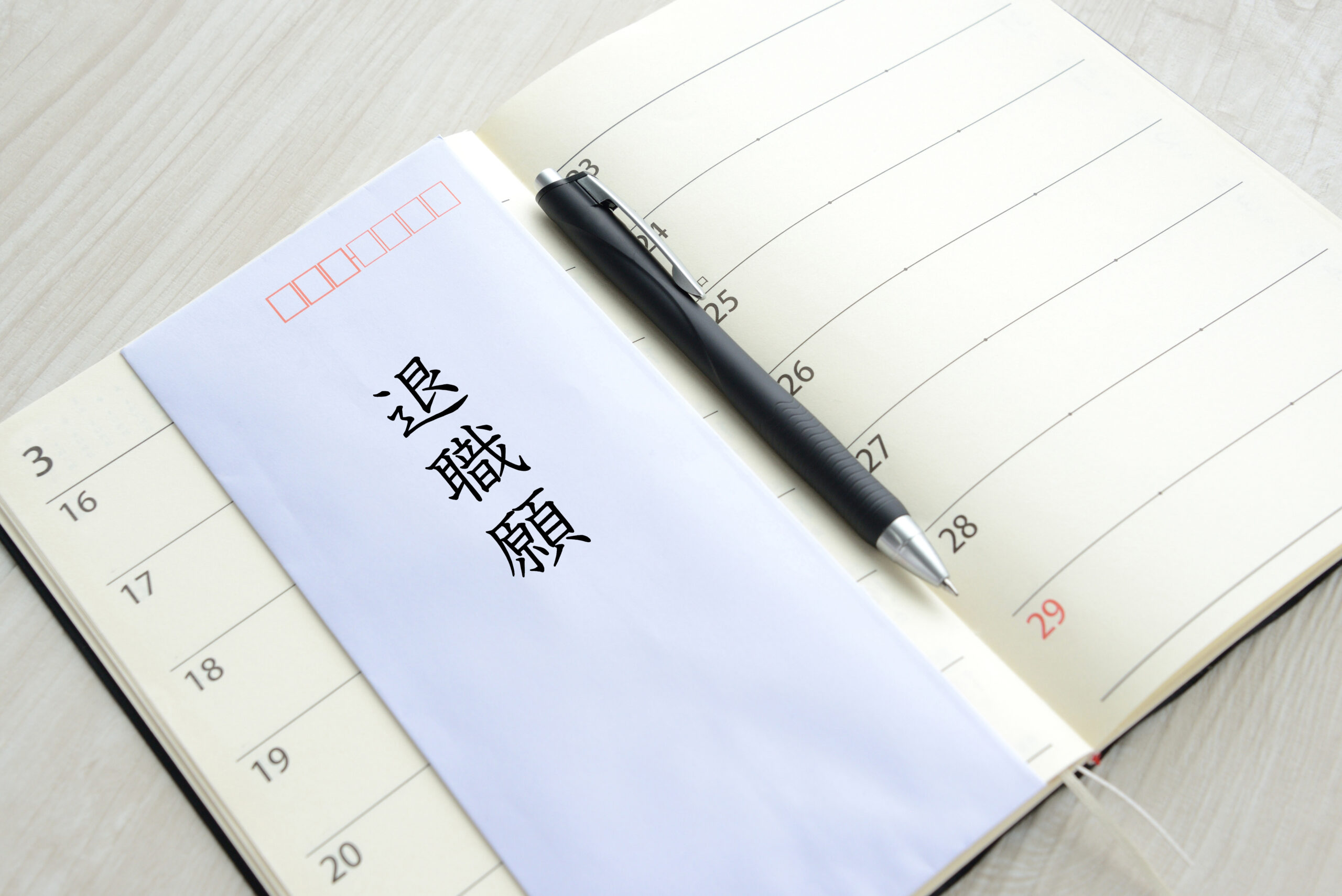Unlock Your Career in Japan: Essential Documents and Steps for a Successful Job Change

“Can I change jobs without affecting my visa? What documents do I need to prepare?”
For many foreigners in Japan, switching jobs can feel overwhelming. From managing visa requirements to handling tax and insurance updates, there’s a lot to consider. But with the right knowledge and preparation, the process doesn’t have to be stressful.
This guide breaks it all down step-by-step: what documents to prepare, how to update your residence card, and tips for staying compliant with Japanese laws. Whether it’s your first job change or a career move, this article will help you transition smoothly and with confidence!
The Japanese Job Market: What You Need to Know
Current Trends and Opportunities
The Japanese job market is evolving as the country adapts to global economic shifts and its aging population. Foreign workers are finding increasing opportunities in various sectors, including technology, education, healthcare, and hospitality. The tech industry, especially, is experiencing a surge as companies innovate and digitize. English teachers also remain in high demand due to Japan’s focus on improving international communication skills among its populace.
The government has taken steps to welcome more international talent to alleviate the domestic labor shortage. This includes policy changes and the introduction of visa categories aimed at skilled labor. However, securing a job often hinges on having specific skills that match these trending sectors.
Challenges for Foreign Workers
Japan’s ongoing commitment to internationalization is creating more opportunities for foreign workers, transforming the employment landscape. Many companies are actively fostering English-speaking environments and promoting diversity, yet the language barrier can still present challenges in roles requiring Japanese proficiency. While cultural differences are increasingly being bridged, they can occasionally affect communication and workplace expectations. Therefore, gaining insight into the progressively inclusive Japanese business etiquette and corporate culture is essential for a smooth transition.
Another challenge is the complex visa process, which can be daunting for those unfamiliar with it. Securing a job often depends on your visa status, making the alignment of job offers with visa requirements crucial.
How to Leverage HelloWork and Other Services

In Japan, HelloWork (ハローワーク) serves as a key resource for job seekers, providing employment services and support to both Japanese nationals and foreign residents. It offers job listings, career counseling, and assistance with preparing applications. Understanding how to effectively utilize HelloWork can make a significant difference in your job search.
There are also several private recruitment agencies that specialize in placing foreign talent in Japanese companies. These agencies can provide invaluable insights and connections, especially in niche markets. By leveraging these resources, foreign workers can better navigate the complexities of job hunting in Japan.
Understanding “HelloWork” and Unemployment Insurance in Japan
HelloWork is Japan’s public employment service center, officially known as the Public Employment Security Office. It operates under the Ministry of Health, Labour and Welfare and is designed to support job seekers and employers by providing a range of employment-related services. The primary goal of HelloWork is to ensure stable employment opportunities for the public by offering job placement services, vocational training, and unemployment insurance benefits.
Services Offered by Hello Work
HelloWork provides a comprehensive suite of services aimed at assisting job seekers in finding employment and supporting employers in recruiting suitable candidates. Some of the key services include:
- Job Placement and Counseling: HelloWork offers job placement services by matching job seekers with available job openings. They provide career counseling to help individuals identify suitable career paths and prepare for job applications.
- Unemployment Insurance Benefits: One of the critical functions of HelloWork is to manage unemployment insurance benefits. This includes processing claims and providing financial support to eligible individuals who have lost their jobs.
- Vocational Training: To enhance employability, HelloWork offers information on vocational training courses. These courses are designed to equip job seekers with the necessary skills and qualifications required in the job market.
- Specialized Services for Young Job Seekers: HelloWork has dedicated services for young job seekers, including new graduates. These services focus on providing career support and job search assistance tailored to the needs of young individuals entering the workforce.
Unemployment Insurance in Japan
Unemployment insurance, known as 失業保険 (shitsugyou hoken) in Japanese, is a social insurance program designed to provide temporary financial assistance to individuals who have lost their jobs. The system aims to support unemployed workers during their job search and facilitate a smooth transition to new employment.
Timing for Receiving Unemployment Insurance
Waiting Period and Benefit Restriction
- Voluntary Resignation: If you leave your job voluntarily, there is a 7-day waiting period followed by a 3-month benefit restriction period before you can start receiving unemployment benefits.
- Involuntary Resignation: If you leave due to company circumstances, such as dismissal or bankruptcy, the 3-month benefit restriction does not apply. Once you complete the necessary procedures at HelloWork and if there is no benefit restriction, payments will begin immediately after the 7-day waiting period.
Amount of Benefits (Calculation of Basic Daily Allowance)
Calculation Method
- The basic daily allowance is calculated based on your wages before leaving the job (total gross salary).
- Formula: Total wages for the last 6 months ÷ 180 days × Benefit Rate (50% to 80%).
Benefit Rate
- A higher percentage (up to 80%) is applied to those with lower wages.
- A 50% rate is applied to those with higher wages.
Estimated Payment Amounts
- Upper Limits (as of Aug. 2024):
- Under 30 years old: ¥7,065 per day
- 30 to 44 years old: ¥7,845 per day
- 45 to 59 years old: ¥8,635 per day
- 60 to 64 years old: ¥7,420 per day
Duration of Benefits
- The duration of benefits varies based on the reason for leaving and the length of employment.
- Voluntary Resignation: 90 to 150 days
- Involuntary Resignation: 90 to 330 days
Example Calculation
- If your monthly wage before leaving was ¥300,000:
- Daily Wage: ¥300,000 × 6 months ÷ 180 days = ¥10,000
- Basic Daily Allowance: ¥10,000 × 50% = ¥5,000
Note: The actual amount may be adjusted based on age and the upper limit.
Eligibility Criteria
To qualify for unemployment insurance benefits in Japan, individuals must meet specific criteria:
- Employment Insurance Enrollment: The individual must have been enrolled in employment insurance for at least 12 months within the two years preceding their unemployment. For those classified as “specific qualified recipients” or “specific reason recipients,” the requirement may be reduced to six months.
- Unemployment Status: The applicant must be in a state of unemployment, actively seeking new employment, and capable of working. This means they should have the intention and ability to work but are unable to find a job.
- Job Search Activities: Applicants are generally required to engage in job search activities, such as applying for jobs or participating in job counseling sessions, to demonstrate their commitment to finding new employment.
Benefits and Duration
The amount and duration of unemployment benefits depend on several factors, including the individual’s previous salary, age, and the reason for unemployment. Generally, the benefits are calculated based on the average daily wage from the previous employment, and the duration can vary depending on the individual’s employment history and circumstances of job loss.
- Basic Allowance: This is the standard benefit provided to unemployed individuals. The amount is determined by the individual’s previous earnings and age.
- Additional Benefits: In some cases, additional benefits may be available, such as employment promotion benefits or education training benefits, to support the individual’s efforts in securing new employment.
Differences in Residency Status
Foreign workers in Japan face specific differences compared to Japanese nationals when accessing unemployment insurance through HelloWork, particularly regarding residency status and required documentation.
- Eligibility Based on Visa Type: Foreign workers must hold a valid work visa that allows them to engage in employment. Common visa categories include “Engineer/Specialist in Humanities/International Services” and “Specified Skilled Worker.” Unlike Japanese citizens, who do not have to worry about visa restrictions, foreign workers must ensure their visa permits them to work and receive unemployment benefits.
- Employment Insurance Enrollment: Foreign workers must have been enrolled in employment insurance for at least 12 months to qualify for unemployment benefits. In some cases, if they are classified as “specific qualified recipients,” this period may be reduced to six months. This requirement can differ from Japanese nationals, who may have different criteria based on their employment history.
Required Documentation
When applying for unemployment benefits, foreign workers need to provide specific documents, which may include:
- Certificate of Employment Insurance (雇用保険被保険者証, koyouhokenhihokenshashou): This document is issued by the employer and confirms the worker’s enrollment in the employment insurance system.
- Separation Notice (離職票): This is a crucial document that indicates the reason for leaving the job and is necessary for processing unemployment claims.
- Residence Card: Foreign workers must present their residence card to verify their legal status in Japan.
- Personal Identification: A valid ID, such as a driver’s license or passport, is required for identity verification.
- Bank Account Information: To facilitate the payment of benefits, foreign workers must provide details of their bank account.
These requirements highlight the additional steps foreign workers must take compared to Japanese nationals, who may have a more straightforward process due to their citizenship status. Understanding these differences is essential for foreign workers navigating the unemployment insurance system in Japan.
HelloWork plays a vital role in Japan’s employment landscape by providing essential services to both job seekers and employers. Through its comprehensive support system, including job placement, vocational training, and unemployment insurance, Hello Work helps individuals navigate the challenges of unemployment and facilitates their return to the workforce. Understanding the services offered by HelloWork and the eligibility criteria for unemployment insurance can significantly benefit those seeking employment assistance in Japan.
Preparing for a Job Change in Japan: Essential Steps
Setting Career Goals and Planning
The first crucial step in preparing for a job change in Japan is to establish clear career goals. Reflect on what you aim to achieve in your next role—whether it’s advancement in your field, a shift to a different industry, or simply a better work-life balance. Understanding your long-term objectives can guide your job search and help you evaluate potential opportunities effectively.
Creating a structured career plan is equally important. Start by identifying the skills and experience required for your desired position and compare them with your current qualifications. This can help identify gaps that you might need to fill, such as acquiring new skills or experiences. In Japan, certifications and documented skills can be significant assets, so consider investing time in additional training or education as needed.
Crafting an English and Japanese Resume
A well-crafted resume is a pivotal element of your job application process. For foreign professionals in Japan, it’s advantageous to prepare both an English and a Japanese version of your resume. While many international companies may accept an English resume, having a Japanese version can demonstrate your commitment to integrating into the local work culture and provide clarity to native-speaking recruiters.
Your resume should highlight not just your technical skills and achievements but also soft skills such as communication and cultural adaptability, which are highly valued in the Japanese workplace. When presenting your work history, emphasize results and specific contributions rather than just duties. This can set you apart in a competitive job market.
Building a Professional Network
In Japan, relationships often play a pivotal role in career development. Building a robust professional network can provide access to job opportunities that may not be advertised publicly. Start by attending industry events, joining professional groups, and actively engaging in community forums both online and offline. Networking can also offer insights into industry-specific challenges and expectations, providing a perspective that could be invaluable during interviews.
Networking in Japan is not just about business but also about forming genuine connections. Show respect and interest in others’ work, and be patient in developing relationships without expecting immediate returns. A polite follow-up message after meetings or encounters can help maintain connections and keep you on potential employers’ radars.
Enhancing Your Skill Set
In Japan’s competitive job market, continuously enhancing your skill set can set you apart from other candidates. If necessary, consider taking courses or obtaining certifications that are relevant to your desired field or position. Many Japanese employers value technical skills and qualifications, so having additional certifications in areas like IT, project management, or language proficiency can boost your employability.
If your job requires Japanese language skills, it is beneficial to prove your Japanese language proficiency through a recognized test such as the Japanese Language Proficiency Test or 日本語能力試験 (JLPT) in Japanese. Even for jobs that do not require fluency, a basic understanding of Japanese can improve communication and integration into the workplace.
Understanding Workplace Dynamics and Expectations
Understanding the dynamics and expectations of a Japanese workplace can significantly influence your preparation. Work cultures can vary widely between Japanese companies and international firms in Japan. Although the differences between Japanese and foreign companies have recently been filled with internationalization, traditionally, Japanese workplaces emphasize hierarchy, group harmony (wa), and loyalty, which influence everything from decision-making processes to everyday communication.
It is essential to familiarize yourself with these dynamics to better anticipate the expectations your potential employer might have. For instance, being prepared to work collaboratively and showing your ability to contribute positively to team environments can enhance your appeal to employers. Also, understanding the role of time management and overtime expectations in Japan will equip you to address these topics during interviews accurately.
Leveraging Online Resources and Tools
The internet offers a wealth of resources and tools that can assist in your job change preparation. Japanese job portals like GaijinPot Jobs and Daijob list numerous opportunities and offer insights into industry trends and company culture. Additionally, platforms like LinkedIn and professional forums can help you connect with industry professionals and expand your network globally.
Make use of online courses and webinars to upgrade your knowledge and skills, particularly those provided by platforms that cater to expats and foreign professionals in Japan. These resources can provide valuable insights into successfully navigating the Japanese job market and can offer a competitive edge.
Key Documents Required for Job Transition in Japan
Writing a Resignation Letter
One of the first formal steps in changing jobs in Japan is to write a resignation letter (退職願, taishoku negai). This letter serves as a formal notice of your intention to leave your current position and is an important document in maintaining professional relationships. In Japan, resignation letters should be concise and respectful, stating your intention to resign and expressing gratitude for the opportunities provided by your current employer.
It’s customary to submit this letter at least a month (usually 1-2 months) in advance, giving your employer sufficient time to manage your departure. The resignation process is a sensitive matter, so ensure the letter is free of criticism and focuses on positive aspects of your employment experience. This helps in preserving goodwill, which can be important for future references.

Obtaining Necessary Employment Certificates
When transitioning jobs, acquiring the necessary employment certificates is crucial. These certificates typically include a Certificate of Employment (在職証明書, zaishoku shomeisho) and Resignation Certificate (退職証明書, Taishoku Shomeisho). These documents verify your employment history and are often required by new employers and immigration authorities to process visa changes.
Ensure your current employer provides these certificates before you leave, as obtaining them post-departure can be complicated. Additionally, accurately maintaining records of your job titles, duration, and duties will simplify future applications and demonstrate transparency in your employment history.
Handling Tax and Social Security Documents
Managing your tax and social security documents is another crucial step when changing jobs. Japan’s tax year runs from January to December, and understanding your tax obligations is essential. When you leave a company, you may need to obtain a Withholding Tax Certificate (源泉徴収票, gensenchoshuhyo), which summarizes your taxable income and the taxes paid during your employment.
Additionally, depending on your employment situation, such as transitioning to freelance work after retirement, you may have to deal with changes in health insurance and pensions. Knowing your rights and obligations regarding social insurance can help ensure a smooth transition. If you are unsure, consult with your HR representative or a professional advisor to clarify your responsibilities.
Notifying Relevant Authorities
It’s essential to notify the relevant authorities about your change in employment status to ensure that all legal and administrative requirements are met. This includes informing the local ward office about changes in your residential status and updating your residency card information if necessary. These steps are vital for both maintaining compliance with Japanese regulations and ensuring the continuity of your legal residency in Japan.
Documents to Obtain from Your Current Employer
1. Resignation Certificate (退職証明書 – Taishoku Shomeisho): A document confirming your resignation and employment period.
2. Withholding Tax Certificate (源泉徴収票 – Gensen Choshuhyo): A certificate summarizing the taxes withheld from your salary. This is essential for tax filing and your new employer.
3. Certificate of Employment (在職証明書 – Zaishoku Shomeisho): A document stating your employment details, such as job title, duration, and responsibilities.
4. Health Insurance and Pension Loss Certificate (健康保険・年金資格喪失証明書 – Kenko Hoken/Nenkin Shikaku Soshitsu Shomeisho): A certificate confirming that you are no longer covered under your previous employer’s health insurance and pension plans.
5. Unemployment Insurance Certificate (雇用保険被保険者証 – Koyo Hoken Hi Hokensha Sho): A document required to transfer your unemployment insurance to your new employer.
6. Final Pay Statement (最終給与明細書 – Saishu Kyuyo Meisaisho): Your last salary slip, which may be needed for tax or financial purposes.
Navigating the Visa and Immigration Process
Impact of Job Change on Visa Status
Changing jobs as a foreigner in Japan can significantly impact your visa status, as your ability to legally work in the country is tied to your current employment. Typically, your visa specifies the industry or position you are authorized to work in. Therefore, any significant change in job type or industry might require a visa update or change.
When planning a job change, ensure your new role is permitted under your current visa category. If the new job falls outside the scope of your existing visa, you will need to apply for a change of status at the nearest immigration office. It’s advisable to avoid gaps between jobs, as this can complicate visa matters.
Steps to Notify Immigration about Changes
Notifying Japanese immigration authorities of your job change is a critical step that should be conducted promptly. Within 14 days of leaving your current job and starting a new one, you must submit a notification of the contract termination and a new employment notice to the immigration bureau. These notifications ensure your residency status remains in good standing and your records are updated.
The process typically involves filling out the necessary forms and providing supporting documents, such as your new contract. Engaging with these tasks promptly prevents legal complications and maintains the continuity of your residence and work rights in Japan.
Consulting Immigration Specialists
Because of the complexities involved in visa and immigration procedures, consider seeking advice from an immigration specialist if necessary. These professionals can provide guidance on maintaining compliance with Japanese laws and assist with any necessary visa applications or changes. They can also help clarify your rights and responsibilities, reducing the risk of complications that might arise from misunderstanding bureaucratic requirements.
Specialists can also advise on the best strategies to align your career ambitions with your visa status, ensuring that your job transitions are smooth and legally sound. By leveraging expert advice, you can better navigate the intricacies of Japan’s immigration system and keep your career progression on track.
Finding Job Opportunities and Recruitment Tips

Utilizing Recruitment Agencies
Recruitment agencies can be a pivotal resource for foreign professionals seeking job opportunities in Japan. These agencies have insights into various industries and can connect you with roles that match your skills and career aspirations. Agencies like Robert Walters, Michael Page, and Hays specialize in assisting foreign professionals and often have access to unadvertised positions, giving you a competitive edge in the job market.
To make the most of recruitment agencies, it’s crucial to maintain regular communication and clearly express your career goals and expectations. They can offer guidance on interview preparation, salary negotiations, and understanding employer expectations, which can be particularly valuable in navigating cultural differences. By leveraging their expertise and networks, you can streamline your job search process and increase your chances of finding a suitable position.
Exploring Online Job Portals
Online job portals are another valuable tool in your job search arsenal. Websites like GaijinPot Jobs and Daijob provide comprehensive listings of job vacancies across various industries, with some platforms specifically catering to foreign job seekers. These portals allow you to tailor your searches based on your skills, experience, and preferred location, making it easier to find jobs that align with your criteria.
Creating a detailed profile on these platforms, including a professional resume and cover letter, increases your visibility to potential employers. Additionally, subscribing to job alerts can keep you informed about new openings, ensuring you never miss opportunities that match your interests.
Importance of Networking Events
Networking is an integral part of securing employment in Japan, with many opportunities arising through personal connections. Attending industry-specific networking events, professional seminars, and job fairs can provide valuable opportunities to meet potential employers and industry peers. Events often hosted by organizations such as Chambers of Commerce and industry associations can be especially beneficial for foreign professionals.
Effective networking involves more than exchanging business cards; it requires engaging in meaningful conversations and demonstrating genuine interest in others’ work. Follow up after these interactions with thoughtful messages or LinkedIn connections to cultivate these relationships. Networking not only opens doors to job opportunities but also helps build a supportive professional community in your new environment.
Cultural Tips for a Smooth Job Transition
Understanding Business Etiquette
While international etiquette is increasingly accepted in Japan, understanding and respecting business etiquette is critical to successfully integrating into a new workplace. The traditional culture of the Japanese workplace emphasizes respect for hierarchical relationships, punctuality, and professionalism.
Japanese business etiquette is summarized in this article. Please refer to it.

Adapting to Workplace Culture
Adapting to workplace culture in Japan involves understanding and participating in group activities and consensus-driven decision-making. Teamwork and group harmony are highly valued, meaning that decisions are often made collectively rather than unilaterally. Being proactive in group discussions and respecting others’ input can help you fit into this dynamic.
Effective Communication Strategies
Effective communication is key to succeeding in a Japanese workplace. Although many companies are becoming more international, understanding Japanese communication styles can enhance your professional interactions. Japanese communication often relies on being indirect and context-driven, where non-verbal cues carry significant weight.
It’s crucial to pay attention to the subtleties of language and body language, practicing active listening and confirming your understanding through polite queries. Showing appreciation for the work and efforts of others can also establish stronger professional relationships. By learning and adapting to these communication styles, you can navigate the intricacies of workplace interactions more effectively.
Summary:Key Takeaways for a Successful Job Change
Successfully changing jobs in Japan as a foreign professional involves navigating a multi-faceted process that includes understanding the dynamics of the Japanese job market and the importance of preparing thoroughly. It requires setting clear career goals, crafting appropriate resumes, and leveraging professional networks to uncover job opportunities. Being aware of the essential documentation and ensuring compliance with visa and immigration processes is crucial. Additionally, adapting to the unique cultural and workplace nuances in Japan will enhance your integration and success in a new role.
Q&A about Job Change in Japan
How do I effectively start the job search process in Japan as a foreigner?
Begin by researching industries that are open to hiring international professionals, such as tech, education, and hospitality. Utilize platforms like GaijinPot and LinkedIn, and seek out recruitment agencies that specialize in placing foreigners in Japanese companies. Networking through local events and meetups can also be invaluable.
What are the essential documents I need from my previous employer in Japan?
Key documents include the Certificate of Employment (在職証明書, zaishoku shomeisho) and the Withholding Tax Certificate (源泉徴収票, gensenchoshuhyo). These verify your employment history and are often necessary for new job applications and visa adjustments.
What should I know about changing jobs and maintaining my visa status?
It’s crucial to notify the immigration office within 14 days when changing jobs. Ensure that your new position aligns with your visa category, and if necessary, seek advice from immigration specialists to apply for a status change or extension.
What cultural nuances should I be aware of to succeed in a Japanese workplace?
With globalization on the rise, cultural differences will be accepted. However, it is helpful to understand unwritten rules, such as the importance of group consensus and indirect communication styles. Paying attention to nonverbal cues and treating people with respect will go a long way in helping you integrate into the workplace.
How can I utilize local resources to enhance my job search?
Take advantage of local resources, such as Hello Work and private recruitment agencies, which provides job information and career counseling especially for foreign residents. Participate in international community groups and workshops focused on career development and cultural adaptation.
